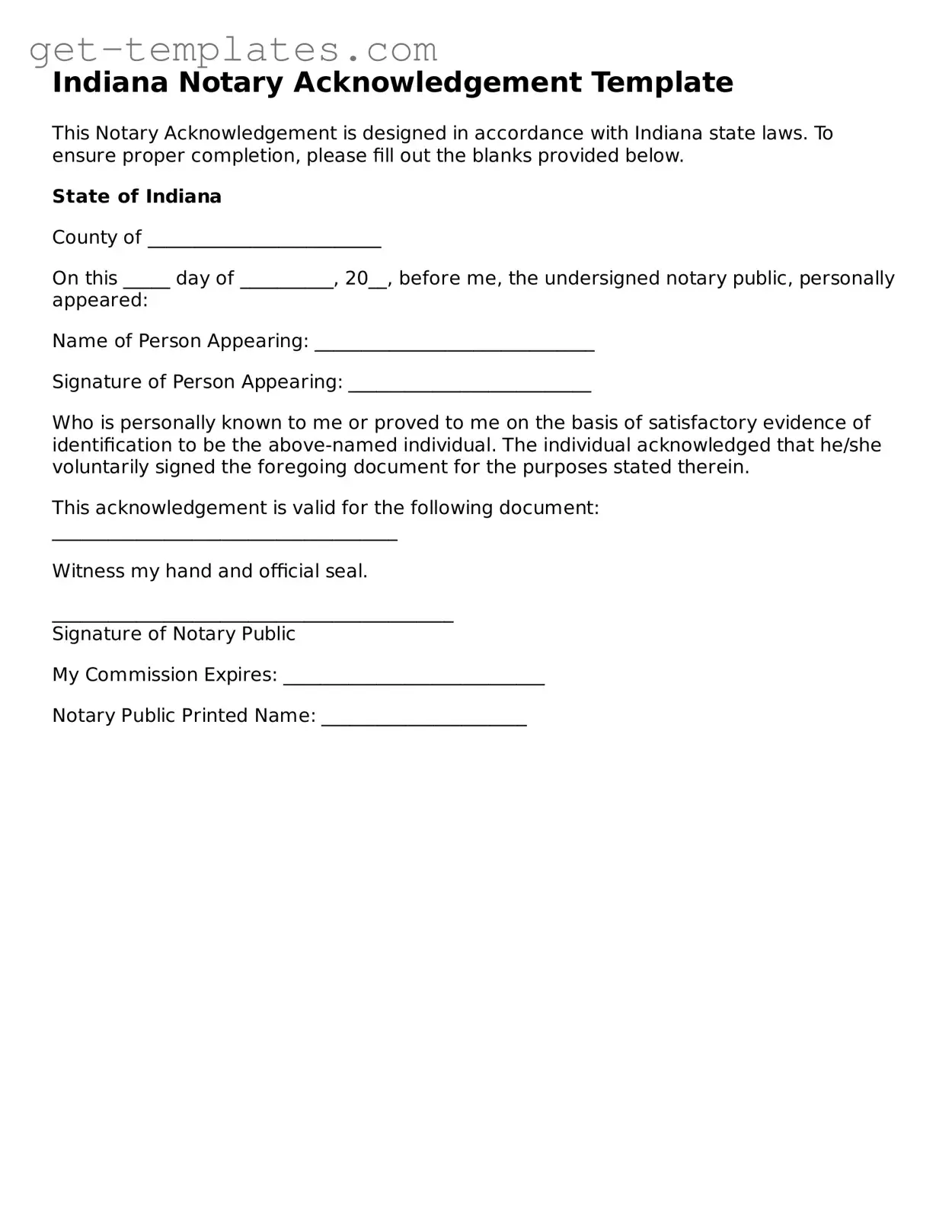Attorney-Approved Notary Acknowledgement Document for Indiana
The Indiana Notary Acknowledgement form is a legal document that verifies the identity of a signer and confirms that they willingly signed a document. This form plays a crucial role in various transactions, ensuring that the signatures are authentic and legally binding. Understanding its purpose and proper use can help prevent disputes and enhance the validity of important agreements.
Get Document Online

Attorney-Approved Notary Acknowledgement Document for Indiana
Get Document Online
You’re halfway through — finish the form
Finish Notary Acknowledgement online — edit, save, download made easy.
Get Document Online
or
⇓ PDF Form
